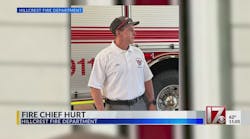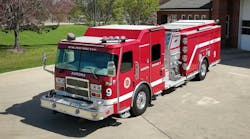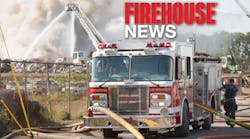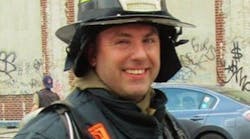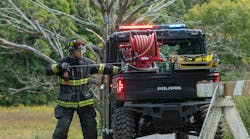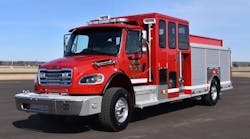Unfortunately, there has been a steady increase in the number of firefighters killed behind the wheel of their own personal vehicles recently. This month's column will discuss causative factors and some guidelines that may help to stem this tide.
In Tennessee in August, a fire department was dispatched to a motor vehicle accident that claimed the life of a 25-year-old fire lieutenant. He died two miles from his home while responding in a personally operated vehicle (POV) to the accident scene. Responders said he was not wearing a seatbelt. This is the first line-of-duty death in the fire department's 25-year history.
A 25-year-old Indiana man who was driving toward his father's burning home was killed in a motor vehicle accident involving a 17-year-old cadet firefighter driving a POV. The victim was reportedly driving to his father's house, where a structure fire had been reported, and his car was struck at an intersection. Police theorize that the cadet was probably driving to the scene of the fire or to the fire station when the accident occurred. The cadet was being treated for a head laceration and was listed in stable condition. Meanwhile, the victim died at the scene and his cause of the death was listed as blunt-force trauma.
A Kansas volunteer firefighter was involved in a responding crash in August. His POV collided with a civilian vehicle at an intersection. Witnesses said that the firefighter had the lights and sirens activated on his car prior to the crash.
Finally, a 44-year-old Arkansas firefighter was killed while responding to a medical call. It is alleged that the firefighter lost control of his POV and was killed.
Here are recommendations for POVs that we can all live by:
- Drive as though your family members are still in the car as you respond.
- Always wear a seatbelt. A young man's life could have been saved if he had done so.
- Respond within the posted speed limit and under control. You are no good to anyone if you do not get there. In fact, you have made it worse, for now there are two incidents for the incident commander to handle and you are one of them.
- Remember, you are supposed to be part of the solution, not part of the problem.
- When at home, back your vehicle into the driveway. You cannot make up time on the road.
- Never try to beat a train or the gates at a railroad crossing.
- Always respond with a window cracked so that you may hear other vehicles, especially those of other responders.
- In the winter, have a system in place to combat frost or snow on the vehicle's windshield. You cannot drive blind.
- School is open. Be mindful of a stopped school bus with red lights flashing. Regardless of what vehicle you are in or to what you are responding, everyone must always stop for the red flashing lights of a school bus. That means everyone, including you.
- Some states consider responding POVs of volunteer firefighters emergency vehicles entitled to have red lights and sirens. Yet other states, like mine, the state of New York, let volunteer firefighters have blue lights. They are supposed to be courtesy lights where the public will see them and pull over. Regardless of what your state allows, you are not being given license to break the law with any colored lights.
- You will be held criminally and civilly liable for your actions behind the wheel of your POV.
- Fall is here. Be careful when driving on wet leaves as it can be like driving on ice.
- Fall is also a time in some parts of the country when there are many periods of fog. Slow down and adjust your driving to the poor conditions.
- Blowing snow or sand, depending of which part of the country you hail from, can be just as blinding as dense fog. Again, adjust your driving to the poor conditions.
- Moose and deer are in the rut this time of year, moving around frequently in search of mates. As you respond, be wary of large animals alongside the road that could cause you to swerve, dart out in front of you or cause you to lose control of your vehicle or worse hit an animal and possibly be killed or injured.
You are responsible for your own personal safety, and your family, friends, fire department and community are counting on you to honor that commitment. May you and your family enjoy a happy and healthy holiday season.
MICHAEL WILBUR, a Firehouse® contributing editor, is a lieutenant in the New York City Fire Department, assigned to Ladder Company 27 in the Bronx, and has served on the FDNY Apparatus Purchasing Committee. He consults on a variety of apparatus-related issues around the country. For further information, access his website at www.emergencyvehicleresponse.com.
